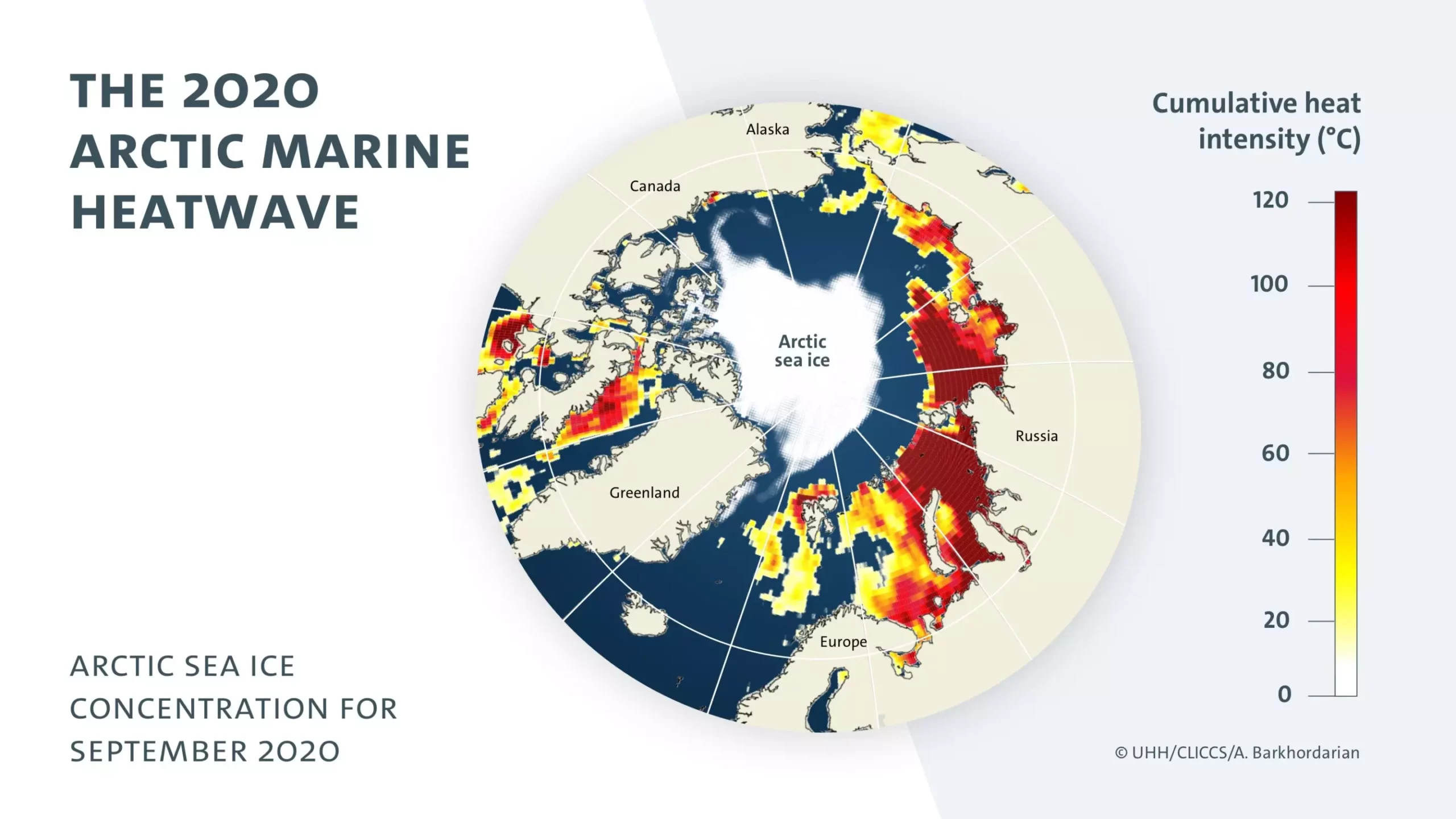A recent study conducted by Dr. Armineh Barkhordarian from Universität Hamburg’s Cluster of Excellence for climate research CLICCS reveals alarming information about the future of the Arctic. The study confirms that marine heat waves will become a regular occurrence in the Arctic due to higher anthropogenic greenhouse-gas emissions. The data, published in the journal Communications Earth & Environment, demonstrates a significant shift in Arctic conditions since 2007.
Analysing the Impact
Between 2007 and 2021, the marginal zones of the Arctic Ocean have experienced 11 marine heat waves, resulting in an average temperature rise of 2.2 degrees Celsius above the seasonal norm. These heat waves lasted an average of 37 days. What is even more concerning is that since 2015, the Arctic has witnessed marine heat waves every year. The most powerful heat wave occurred in 2020, lasting a staggering 103 days and reaching peak temperatures that were four degrees Celsius over the long-term average.
Barkhordarian’s research team at the Cluster of Excellence CLICCS has calculated that the probability of such a heat wave occurring without the influence of anthropogenic greenhouse gases is less than 1%. Their analysis narrows down the number of plausible climate scenarios in the Arctic, emphasizing the significant role of human activities in these extreme weather events.
Early Sea Ice Melting as a Trigger
The study also unveils a crucial finding that heat waves are produced when sea ice melts early and rapidly following the winter season. This early melting allows significant heat energy to accumulate in the water by the time maximum solar radiation is reached in July. The decrease in thicker, several-year-old ice and the increase in thin, seasonal ice contribute to this phenomenon. The thinner ice is less durable and melts more quickly, enabling incoming solar radiation to warm the water’s surface.
The Consequences for the Arctic Ecosystem
The consequences of marine heat waves in the Arctic extend beyond the temperature rise. Barkhordarian warns that these events, coupled with the continuous loss of sea ice and rising water temperatures, could have dramatic negative effects on the Arctic ecosystem. The Arctic food chains may collapse, fish stocks could be significantly reduced, and the overall biodiversity may decline. It is crucial to recognize the urgency of addressing and mitigating the causes of these heat waves to protect the fragile Arctic environment.
The study concludes that marine heat waves will become the norm in the Arctic. This finding highlights the urgency of taking action to reduce greenhouse gas emissions and mitigate climate change on a global scale. The Arctic, often seen as a bellwether for climate change, requires immediate attention and concerted efforts to preserve its delicate ecological balance. Failure to do so can have severe repercussions not only for the region but also for the planet as a whole.
Dr. Barkhordarian’s study serves as a wake-up call, shedding light on the increasing frequency of marine heat waves in the Arctic. The findings emphasize the significant role of anthropogenic greenhouse-gas emissions in driving these extreme weather events. With the Arctic experiencing unprecedented changes and facing potential ecological collapse, urgent action is needed to combat climate change and safeguard the future of our planet’s delicate ecosystems.


Leave a Reply